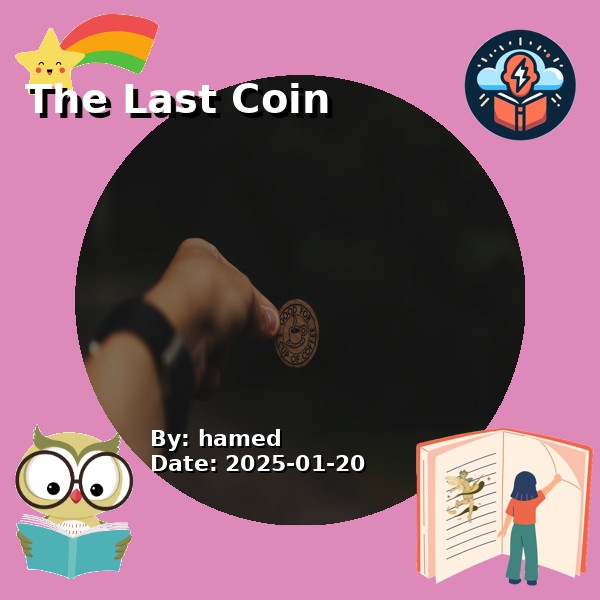In a world of invisible transactions and silent swipes, Ezra’s shop stood as an anomaly. The hand-painted sign above his antique store read: “Cash Only.”
People mocked him for it. "You’re clinging to fossils," they'd say, tapping their sleek AR glasses or gesturing at wrist-bound payment bands. Ezra didn’t care. The jingling of coins and the crisp rustle of bills felt real to him, grounding, like the dust that clung to the air in his store.
But business dwindled. Week by week, fewer customers walked through the creaky door. Most of them turned away, muttering about inconvenience. By the time winter rolled in, Ezra was days away from closing for good.
That’s when she arrived.
The bell above the door jingled, and Ezra looked up from his ledger. A tall woman in an old-fashioned coat stepped inside, her dark eyes scanning the shelves. She looked out of place, as though she’d walked out of a daguerreotype.
“Welcome,” Ezra said gruffly. “Looking for anything in particular?”
The woman smiled faintly. “Not exactly. I was curious about your sign.”
Ezra shrugged. “Not many people still carry cash. But I like the feel of it. Reminds me that there’s value in something tangible.”
The woman nodded, her eyes lingering on a glass case filled with silver coins. She pointed to one—a small, tarnished disk stamped with a star.
“How much for that?”
Ezra leaned closer, peering at the coin. “Ah, that’s a Liberty Seated dime. 1843. Worth about $20.”
The woman reached into her pocket, and Ezra’s heart stopped. She pulled out a leather pouch, its drawstring frayed with age, and tipped it gently into her palm.
A cascade of coins spilled out—gold, silver, copper—all gleaming as though freshly minted. Ezra had never seen anything like them. One coin in particular caught his eye: a strange, iridescent disk that shimmered with colors he couldn’t quite name.
“This one,” she said, holding the shimmering coin between her fingers. “Will it suffice?”
Ezra stared, captivated. “I’ve never seen a coin like that. What is it?”
She smiled cryptically. “Something rare.”
He hesitated. “It’s worth more than the dime, surely.”
“Perhaps. But I think you’ll find it’s worth exactly what you need.”
Without waiting for his response, she placed the shimmering coin in his hand, took the Liberty dime, and walked toward the door.
“Wait,” Ezra called after her. “Who are you? Why do you have this?”
The woman turned, her face calm. “Someone who values the tangible, just as you do.”
Then she was gone, leaving Ezra standing in the quiet shop, the iridescent coin still warm in his palm.
Later that evening, as the lights dimmed and the cold crept in, Ezra turned the coin over in his fingers, wondering if he’d imagined the way it pulsed faintly, like a heartbeat.
The next morning, his shop was busier than it had been in years. Customers came not for the antiques but to glimpse the coin—word of its strange beauty spread fast. Ezra never understood its origin, nor did he ever see the peculiar woman again.
But the coin saved his shop, its value transcending money. It became a story, a relic, something to hold. And in a world of the intangible, Ezra knew he had been right to wait for it.
